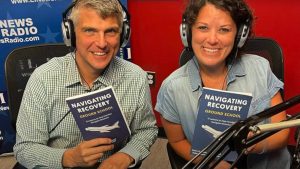
Watch your thoughts, they become your words;
And your words, as they become your actions;
watch your actions, they become your habits;
And your habits, as they become your character;
watch your character, it becomes your destiny.
This quote is by Lao Tzu. He is the same philosopher that wrote, “a journey of a thousand or miles begins with a single step.” It helps us to understand how our thoughts can either keep us in addiction or help us to recover.
A lot of self help books say our thoughts can manifest anything we desire. While I’m still waiting to manifest my winning lottery ticket, I see that recovery starts with setting a mindful intention. The power to change and recover from addiction begins with simply questioning the relationship we have with our using. Once we begin to think about changing, recovery can finally begin.
There are many thoughts that perpetuate addiction. But before we’re ready to change, we’re unable to see another way to live. So, we think living any other way will hold us back. When using, we tell ourselves myths that support our use. Myths like “I need it to relax” or “everyone is doing it.”
Thus, we stay in patterns of abuse. We also tell ourselves that we can’t recover or that we don’t want to. We think we’ll lose our friends and that “AA doesn’t work for me.”
The lies we tell ourselves take a toll
Just as Lao Tzu says, our thoughts become our words. “Today is different” or “I am a functional alcoholic” become the stories we tell. We verbally justify our use to ourselves and to a willing or complicit audience of others in the same boat.
As we preach about how our using isn’t that bad, our actions follow. We embody our thoughts and words. Hence we start showing up as the life of the party, happy hour ring leaders, and the Sunday brunch accomplices. Actions become habits and so on and so forth.
In active addiction, we build our lives to accommodate our use. We hang out with other people that accept our use, in places where we’re free to use unhindered. We isolate from everything so no one sees the truth about our addiction.
Eventually, our entire living environment supports using. It then becomes difficult to see the possibility of life without drugs and alcohol.
The Transformation begins when you decide it does
One of the hardest transitions in a recovery journey is going from thinking about recovery to talking about recovery. To talk about our use is to acknowledge a problem that brings up a lot of shame. When we verbalize it to another person, some part of us knows the jig is up.
Once we talk about our use, it’s harder to stuff it back in the bottle. Our fear of verbalizing our problem can extend our entry into recovery by years.
The good news is that as soon as someone talks about their problem, they start to learn about their options for recovery. They might ask for help from a psychiatrist or talk to someone already in the process themselves. Whomever they reach out to can provide a list of suggestions for the person to try.
While the transition from thinking to talking about the problem is hard, what’s often harder is taking the first step. Going to a recovery meeting or choosing to enter into a treatment program are monumental actions that initiate true change.
Making big choices brings big results
As Lao Tzu says, these new actions become habits. Just as drinking and drug use were habits, we start to formulate new non-using habits. Once therapy and/or 12-step meetings become part of our new routine, lasting recovery begins; new habits are formed.
While destiny may seem a tad ‘Pollyanna,’ in my life I’ve seen how new habits of recovery change our future. Continuing to use is a direct path to problems while a life in recovery is full of new opportunities.
Things that I couldn’t imagine doing when I was using are now my reality. I never thought I could run marathons, get an MBA, or have a family, yet I’ve accomplished all of these goals, and my future — my destiny — has changed.
About Adam Banks
Adam Banks is a certified interventionist and the owner of Adam Banks Recovery. After receiving an MBA from the University of Chicago, Adam built a company acquired by United Health Care. His discipline and attention to detail comes from his former career as an airline pilot, holding an ATP, the FAA’s highest license.
Today, Adam is dedicated to helping others achieve long-term sobriety. His work has guided executives, pilots, and physicians on paths to recovery. Adam brings families together through a loving and inclusive approach.
Adam has authored four books on addiction. His recent work, Navigating Recovery Ground School: 12 Lessons to Help Families Navigate Recovery, educates families on the entire intervention process. He also offers a free video course for families considering an intervention for a loved one.
Adam is available for alcohol and drug intervention services in New York, Long Island, the Hamptons as well as nationally and internationally.




